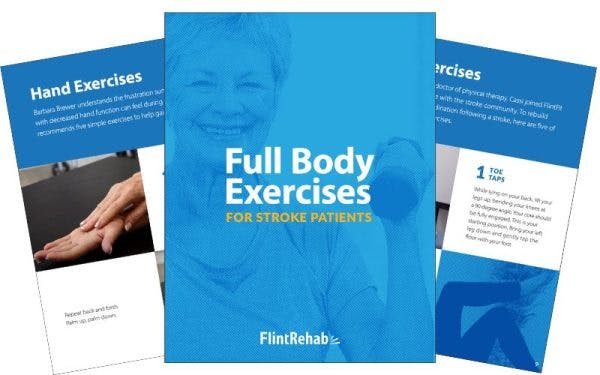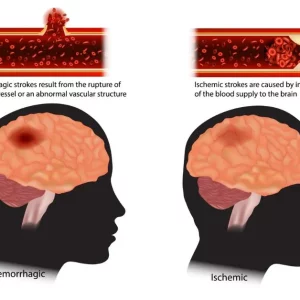Your blood type plays a role in more than just transfusions. Recent research suggests it may also influence your risk of developing certain health conditions, including stroke. While it’s not the only factor that matters, understanding the connection between blood type and stroke risk can give you a clearer picture of your overall health.
In this article, we’ll explore what science says about how your blood type may affect your likelihood of having a stroke, how it compares to other risk factors, and what you can do to stay protected no matter your blood type.
Jump to a section:
What Are the Different Blood Types?
The Link Between Blood Type and Stroke Risk
Does Blood Type Matter More in Younger Adults?
Comparing Blood Type to Other Stroke Risk Factors
Should You Get Tested for Blood Type If You Don’t Know It?
How to Reduce Stroke Risk No Matter Your Blood Type
Genetic Testing and Stroke: Beyond Blood Type
What Are the Different Blood Types?
Before diving into the connection with stroke, it helps to understand the basics of blood types. There are four main types:
- Type A
- Type B
- Type AB
- Type O
Each type can also be classified as Rh-positive or Rh-negative, based on the presence or absence of a protein called the Rh factor.
These types are determined by the antigens found on the surface of your red blood cells. Your blood type is inherited from your parents and remains the same throughout your life.
The Link Between Blood Type and Stroke Risk
In recent years, several studies have examined whether certain blood types are linked to a higher or lower risk of stroke. Researchers have found some compelling patterns especially when it comes to ischemic stroke, the most common type, which occurs when a clot blocks blood flow to the brain.
Blood Type A: Slightly Heightened Stroke Risk
People with blood type A may face a slightly higher risk of early-onset ischemic stroke. A study published in 2022 in the journal Neurology analyzed genetic data from over 16,000 stroke patients and nearly 600,000 controls. The researchers found that individuals with type A blood were 16% more likely to experience a stroke before the age of 60 compared to those with other types.
One reason may involve clotting. People with type A blood tend to have higher levels of a protein called von Willebrand factor, which helps blood clot. While this is important for healing, it can also increase the risk of clot formation in blood vessels, potentially leading to a stroke.
Blood Type AB: A Less Common but Riskier Profile
Though type AB is the rarest blood type, some research suggests it may carry one of the highest stroke risks. A 2014 study from the University of Vermont found that individuals with type AB blood had an 83% higher risk of stroke.
Furthermore, a protein known as Factor VIII, which plays a role in blood clotting, was determined to account for 60% of the association between type AB blood and stroke risk.
The combination of A and B antigens as well as higher clotting factor levels may influence inflammation, vascular function, and the likelihood of blood clots, leading to a heightened stroke risk.
Blood Type B: Mixed Evidence, No Strong Links
The evidence for blood type B and stroke is less consistent. According to a 2023 meta-analysis that examined 145,000 stroke cases and 2,000,000 controls, there is no significant association between blood type B and ischemic stroke. Other smaller studies have found mixed results, with only weak associations between blood type B and stroke risk..
Blood Type O: Lower Stroke Risk
If you have blood type O, the research is a bit more reassuring. Multiple studies have found that people with type O blood generally have a lower risk of developing blood clots and by extension, a lower risk of ischemic stroke. According to the 2022 study mentioned above, those with type O blood were 12% less likely to experience an early-onset stroke compared to those with other blood types.
People with type O blood typically have lower levels of von Willebrand factor and factor VIII, both of which play a role in clotting. While this can lead to slower clotting in injuries, it also seems to provide some protection against unwanted clots in the arteries.
Early-Onset vs. Late-Onset Stroke: Does Blood Type Matter More in Younger Adults?
One of the more interesting findings from recent research is that the connection between blood type and stroke risk may be stronger in younger adults. The 2022 Neurology study found that the difference in stroke risk based on blood type was more pronounced in people under 60.
Why might this be? One possibility is that, in older adults, other factors, like high blood pressure, atrial fibrillation, and diabetes, play a more dominant role in stroke risk. In younger individuals, genetic and biological differences such as blood type may stand out more clearly.
Comparing Blood Type to Other Stroke Risk Factors
It’s important to remember that blood type is just one piece of the puzzle. Many other factors have a far more significant impact on stroke risk, including:
- High blood pressure – The leading cause of stroke.
- Smoking – Increases clot formation and damages blood vessels.
- Diabetes – Raises the risk of both ischemic and hemorrhagic strokes.
- High cholesterol – Can lead to plaque buildup and blocked arteries.
- Obesity and inactivity – Contribute to multiple other risk factors.
- Family history and genetics – Including but not limited to blood type.
Compared to these, blood type has a more modest influence. It’s not something you can control, and it’s not a reason to panic. However, it may help you be more aware and proactive.
Should You Get Tested for Blood Type If You Don’t Know It?
If you’re curious about your blood type, especially in the context of stroke prevention, getting tested can give you helpful insight. That said, knowing your blood type isn’t a substitute for managing known stroke risks.
If you already lead a healthy lifestyle, keep your blood pressure in check, and avoid smoking, you’re likely doing more for your stroke prevention than anything related to blood type could tell you.
How to Reduce Stroke Risk No Matter Your Blood Type
Whether you’re type A, B, AB, or O, there are proven ways to reduce your risk of stroke:
1. Manage Blood Pressure
High blood pressure is the number one cause of stroke. Monitor it regularly, take prescribed medications if needed, and reduce sodium in your diet.
2. Stay Active
Exercise improves circulation, lowers blood pressure, and helps maintain a healthy weight. Current recommendations call for 150 minutes of moderate exercise per week. This can be translated to aiming for about 30 minutes of moderate activity most days.
3. Eat a Brain-Healthy Diet
Choose whole grains, leafy greens, berries, and healthy fats like those found in nuts and olive oil. These foods support heart and brain health.
4. Quit Smoking
If you smoke, quitting can drastically reduce your stroke risk. Even within weeks of quitting, your blood vessels begin to heal.
5. Limit Alcohol
Drinking too much can increase blood pressure and weaken the heart. Stick to moderate drinking if at all.
6. Control Blood Sugar and Cholesterol
If you have diabetes or high cholesterol, work closely with your healthcare provider to manage them with diet, exercise, and medication.
Genetic Testing and Stroke: Beyond Blood Type
As research continues to explore the genetic components of stroke, blood type is just one of many markers scientists are studying. Advances in genetic testing may one day help identify people at higher risk much earlier.
But for now, blood type can offer a useful clue, not a diagnosis. It may encourage more personalized prevention strategies in the future, but it’s best to focus on the factors we can control today.
What If You’ve Already Had a Stroke?
If you’ve experienced a stroke, knowing your blood type might provide context, but it won’t change the treatment or recovery plan. Your focus should remain on rehabilitation, medication adherence, and lifestyle changes to reduce the risk of another stroke.
Some people with type A or AB blood might benefit from closer clotting factor monitoring, but this is typically guided by your medical history and doctor’s recommendations, not blood type alone.
Final Thoughts: Should You Worry About Blood Type and Stroke?
Blood type may play a small role in your stroke risk, especially if you’re under 60. If you have type A or AB blood, it might be helpful to stay extra alert to other risk factors, like blood pressure and cholesterol levels.
Still, your day-to-day habits carry far more weight than your blood type. The most powerful steps you can take to protect your brain like eating well, exercising, and avoiding smoking apply to everyone, regardless of blood type.
So, if you’ve found out you’re type A or AB, don’t panic. Think of it as motivation to double down on your healthy habits. And if you’re type O, don’t get complacent stroke can still happen, especially if you don’t make healthy lifestyle choices.









